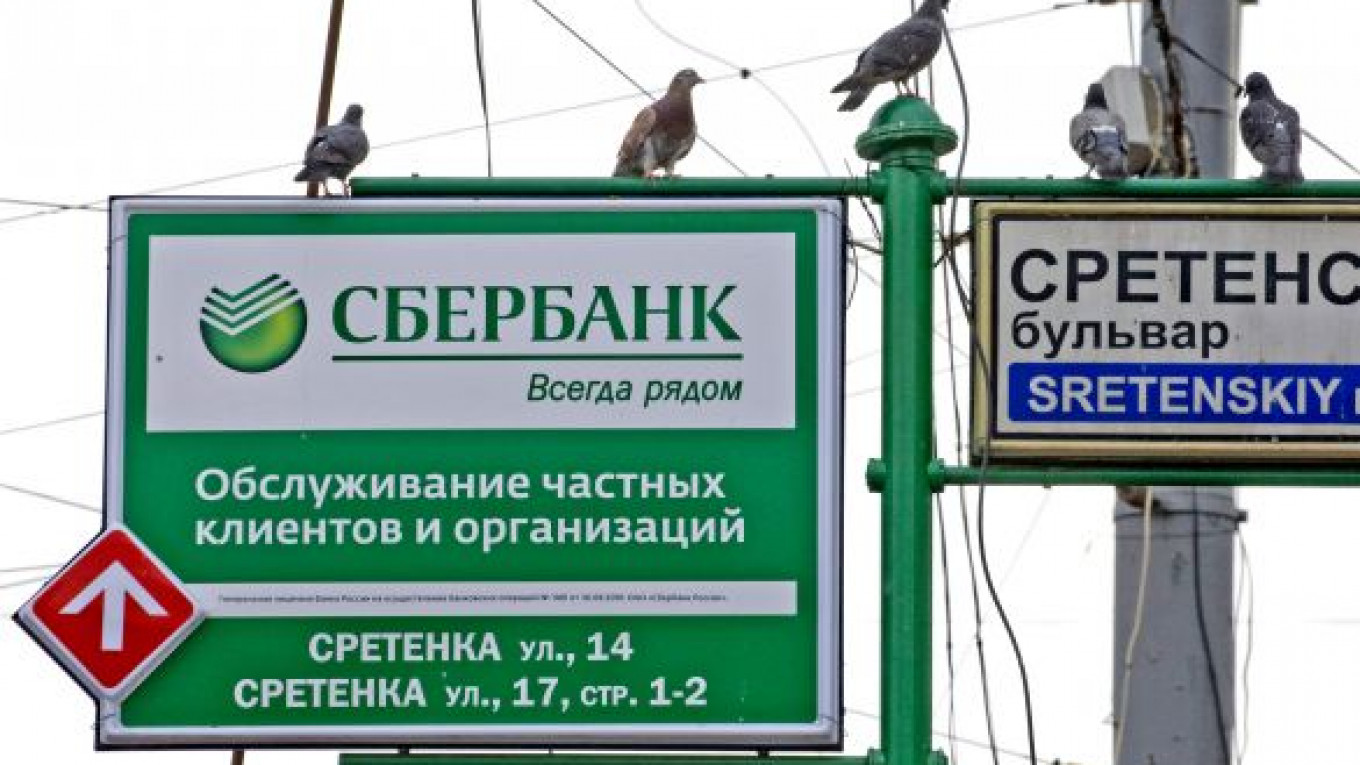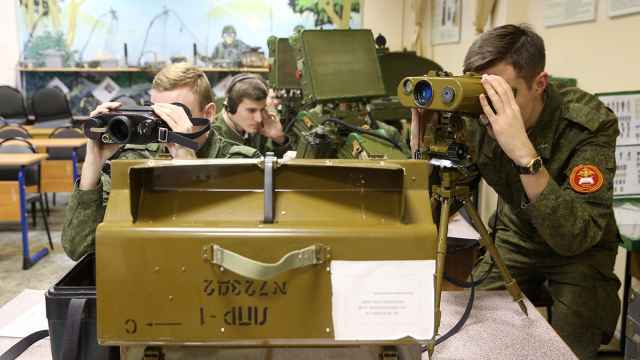Top lender Sberbank posted a 4 percent fall in first quarter profits as it set aside $1 billion to cover potential bad loans, the bank said on Wednesday, a sign that debtors may be struggling in a weakening economy.
Sberbank, which accounts for around a third of overall lending in Russia, said first quarter net profit was 88.5 billion rubles ($2.8 billion) versus 92.2 billion rubles in the first quarter of last year. A poll of analysts forecast the bank to post 87.1 billion rubles.
Provisions for possible bad loans rose to 31.8 billion rubles, higher than expected. In the first quarter of last year, Sberbank released 3.2 billion rubles in provisions, boosting net profit.
"This [rise in provisions] is most likely to be linked to quite high retail lending along with overall economic slowdown," said Mikhail Shlemov, an analyst with VTB Capital.
Russian gross domestic product grew by an annual 1.6 percent in the first quarter, its slowest quarterly pace since late 2009, increasing the risk of a spike in bad loans if unemployment increases.
Sberbank said on Wednesday that its loans to legal entities, the bulk of which is corporate loans, added 0.9 percent. Retail lending, which accounts for a quarter of Sberbank's total loan book, rose 2.6 percent since the start of the year.
Its non-performing loan ratio, or NPL, was almost flat at 3.3 percent versus 3.2 percent at the end of last year. In year on year terms, NPL was down from 4.8 percent.
Last week, ratings agency Standard & Poor's said Russian banks could be forced to spend over 400 billion rubles in additional provisions on consumer loans.
In the first quarter, Sberbank's Tier 1 capital adequacy ratio stood at 10.9 percent, up from 10.4 percent at the end of last year, giving the bank more room to expand its business.
On Tuesday, chief executive German Gref reiterated the bank's forecasts on net profit and lending for this year, set at 370-390 billion rubles and around 15-20 percent, respectively.
A Message from The Moscow Times:
Dear readers,
We are facing unprecedented challenges. Russia's Prosecutor General's Office has designated The Moscow Times as an "undesirable" organization, criminalizing our work and putting our staff at risk of prosecution. This follows our earlier unjust labeling as a "foreign agent."
These actions are direct attempts to silence independent journalism in Russia. The authorities claim our work "discredits the decisions of the Russian leadership." We see things differently: we strive to provide accurate, unbiased reporting on Russia.
We, the journalists of The Moscow Times, refuse to be silenced. But to continue our work, we need your help.
Your support, no matter how small, makes a world of difference. If you can, please support us monthly starting from just $2. It's quick to set up, and every contribution makes a significant impact.
By supporting The Moscow Times, you're defending open, independent journalism in the face of repression. Thank you for standing with us.
Remind me later.






